Back to School Book Guide: Higher Ed Edition
Dive into the history of rankings, teaching, technology, and more!
It’s back to school time and this is the first year I’m not heading back to campus in the fall to teach. So, I decided to share some of my favorite books on higher education instead. This month’s guide is a lot of history, a little bit of data, and some cold, hard reality. The topics span teaching, technology, politics, and the business of higher education. There’s a little bit of something for everyone. If you work in higher education, I urge you to read all of them; if you don’t, add a healthy few to your TBR pile. Happy reading!
The Amateur Hour: A History of College Teaching in America
By Jonathan Zimmerman | Published 2020 (John Hopkins University Press)
College teaching gets a lot of flak, and honestly, I can see why. I spent six years teaching college courses and it’s hard to do well and takes an incredible amount of time. It’s even more difficult when professors receive almost no training at all before they are thrown into the classroom. How did college teaching become this way? In The Amateur Hour, Zimmerman recounts the history of college teaching showcasing just how little has changed since the 19th century. Classes largely went from recitations to lectures… and haven’t progressed much beyond that for standard instruction. Walk into a college classroom today and more times than not you’ll be walking into a lecture. This is a great book and a worthy read for those interested in college teaching.
Failure to Disrupt: Why Technology Alone Can’t Transform Education
By Justin Reich | Published 2020 (Harvard University Press)
One of my favorite higher ed books of all time. I worked in the education technology (edtech) space for several years and this book single-handedly showcases the current challenges that edtech faces. Most tech fundamentally does the same few things, and has done so for decades (see the next book on this list). The bigger problem with edtech is that automating away teaching only teaching students to do things that machines can proficiently do and assess already, leaving students ill-equipped to compete in a marketplace of AI. It’s an excellent book, and one everyone should read.
Teaching Machines: The History of Personalized Learning
By Audrey Watters | Published 2023 (MIT Press) | Read my review
“Personalized learning” is the term used primarily to emphasize the benefits of machine-based teaching and learning in education. It’s touted as a fundamentally ‘new’ thing, although history shows machine-based learning has been around for over a century. And, as the Failure to Disrupt book above shows, the machines all strive to do the same few things. This is a great book for history buffs and, perhaps more importantly, people working in the new-age of higher education and edtech.
Breaking Ranks: How the Rankings Industry Rules Higher Education and What to Do about It
By Colin Diver | Published 2022 (Johns Hopkins University Press) | Read my review
This book could hardly be timelier as top schools around the country proclaim that they are exiting from the U.S. News & World Report annual college rankings list (the top ranked rankings of higher education institutions). These rankings, originally formulated to increase magazine sales, have become the top goal of many institutions over the ensuing decades. These rankings are so important that admissions departments and institutions have been finding ways to game the metrics and falsifying data in the hopes of increasing their rankings even by just one spot. This is a highly researched and fascinating book on the manipulative side of higher ed.
Campus Economics: How Economic Thinking Can Help Improve College and University Decisions
By Sandy Baum | Published 2023 (Princeton University Press) | Read my review
Higher education in the US is complicated and diverse. And understanding funding structures and budgets of institutions can be insightful. This short and informative read on the basic economics of our institutions is a must read for anyone working in higher ed to get a fuller picture of how money flows in and out of universities.
After the Ivory Tower Falls: How College Broke the American Dream and Blew Up Our Politics―and How to Fix It
By Will Bunch | Published 2022 (William Morrow) | Read my review
This was one of my favorite books I read in 2022. It offers the best diagnosis I’ve read of what the hell has gone wrong in higher education and politics today. Bunch demonstrates how higher ed and politics have become inexorably intertwined since the post-war era, with education being the most robust dividing line between republicans and democrats now. But as the 1960s era of campus protests erupted, conservative lawmakers began to shift their perspective on higher education. Rather than taxpayer funded colleges where students were protesting the very government paying for their liberal education, the view of college as a public good began to collapse. This is a must read, and even inspired me to publish an op-ed in Inside Higher Ed.
A Perfect Mess: The Unlikely Ascendancy of American Higher Education
By David F. Labaree | Published 2017 (University of Chicago Press)
This book gives the best historical overview of the US higher education system that I’ve read to date. This succinct book explains the fundamental contradictions that define our education system: It both affords access to the highest proportion of students anywhere in the world, while preserving social privilege and increasing inequality; it is both populist by promising social mobility to all, and elitist by maintaining a clear hierarchical tier of selectivity and advantage; and, it’s best viewed as a public good to society, while being best viewed as a private good to the individual. This is a must read to understand how our “perfect mess” came to be.
The College Dropout Scandal
By David Kirp | Published 2019 (Oxford University Press)
And to end the list with a splash of optimism. We’ve pushed students into the college route for decades. But on average, some 40% of students don’t ever graduate, meaning they are left without a degree and debt to pay off for the time they did attend. But it doesn’t have to be that way. Kirp takes the reader on a tour of colleges across the country that are making significant strides toward decreasing their dropout rates. It’s really an inspiring read for the few optimists left in higher ed.
You may also like…
Best of Education Book List
Education is a tricky topic. Because everyone has had education experience – either as a student or professional – nearly everyone has an opinion on education philosophy, practice, and policy. Me included. I went to public K12, attended a regional research university, earned a bachelors, masters, and doctorate, and have been teaching and researching in e…
This post contains affiliate links, allowing me to earn a small commission when you purchase books from the link provided. There is no cost to you, and this will allow me to keep this newsletter free and open to all. Happy reading!





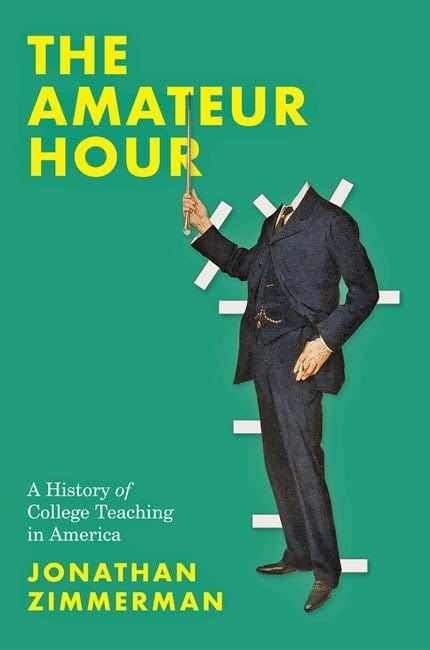
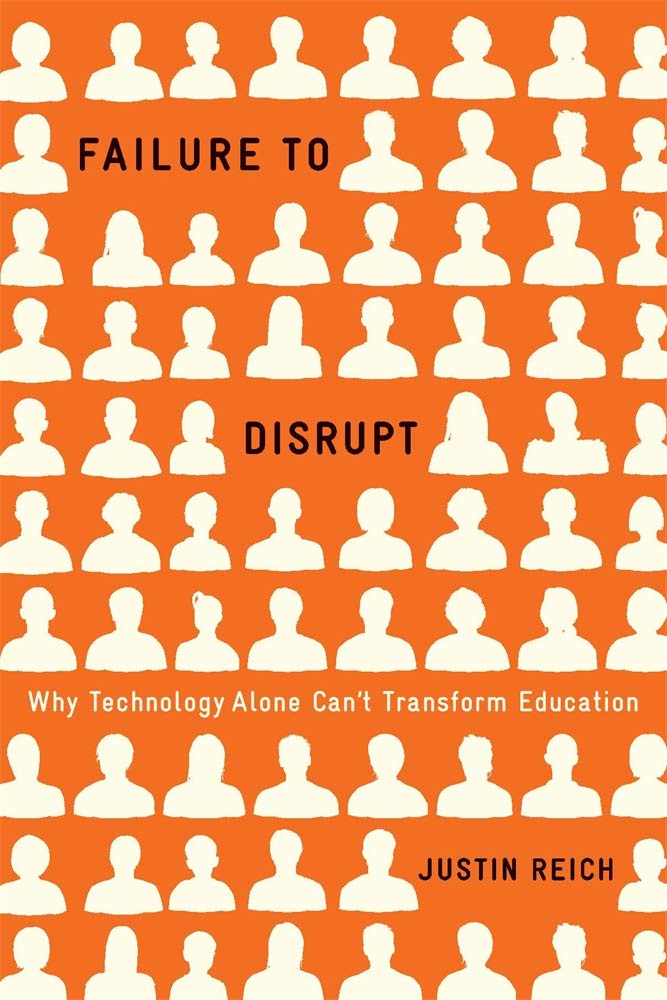
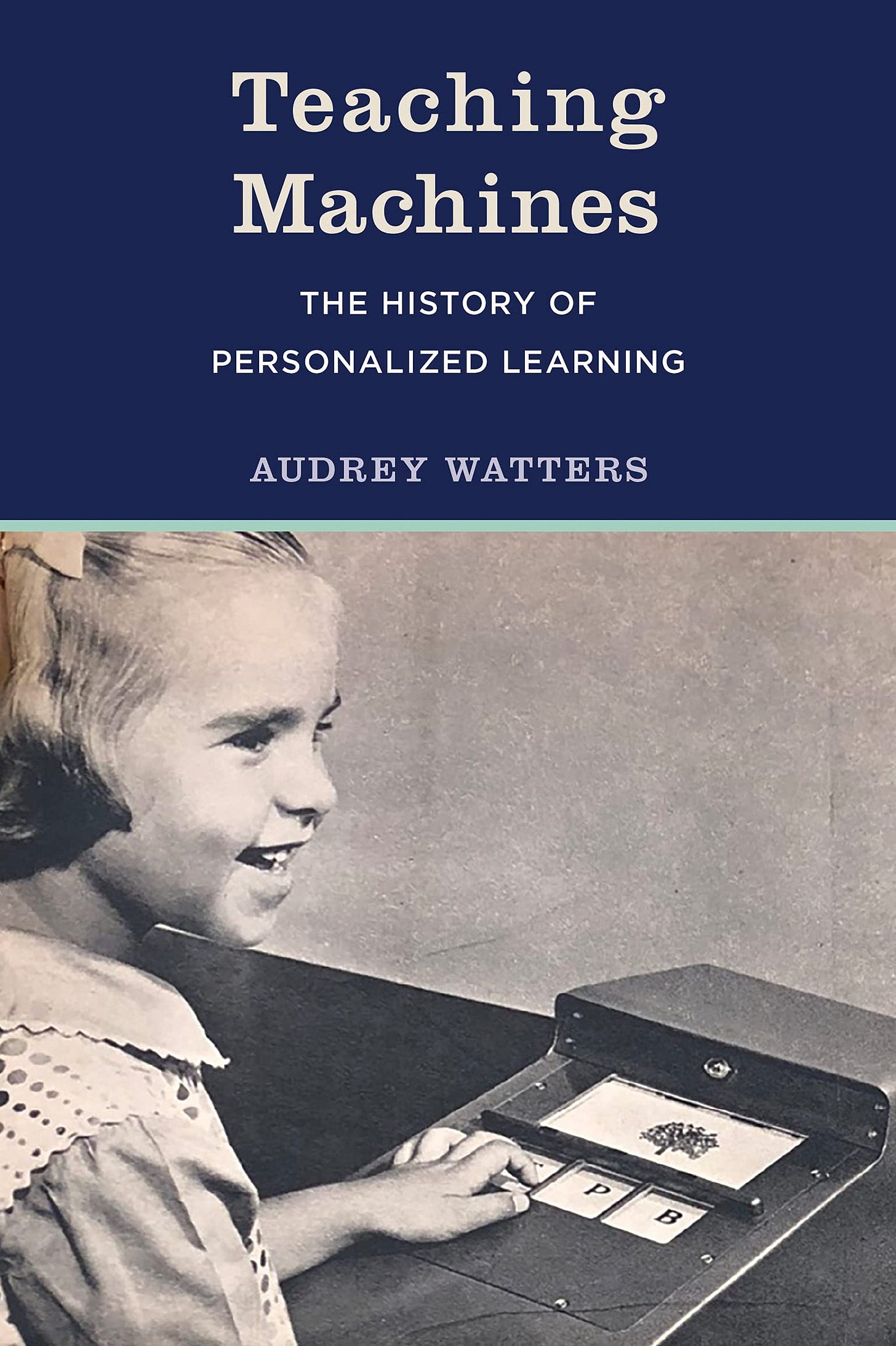
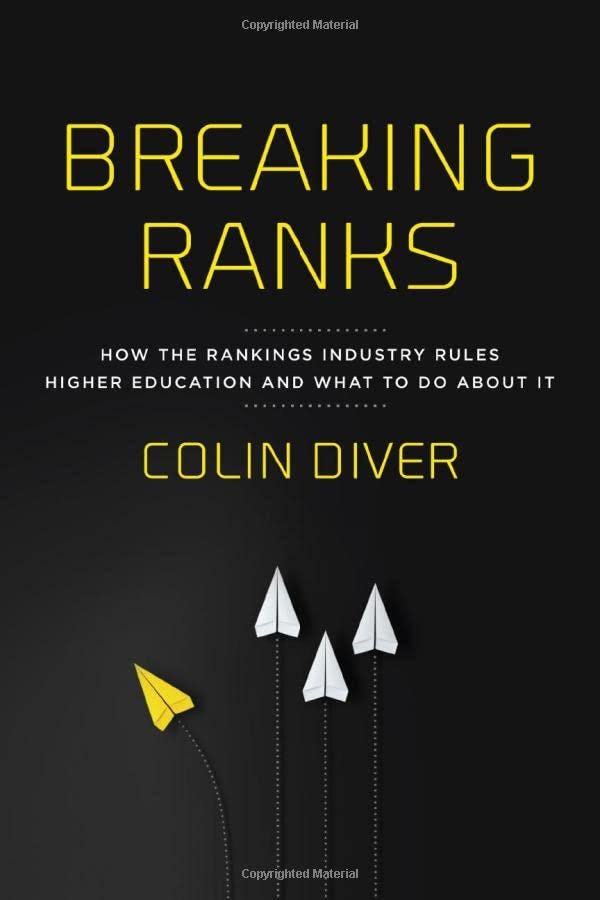
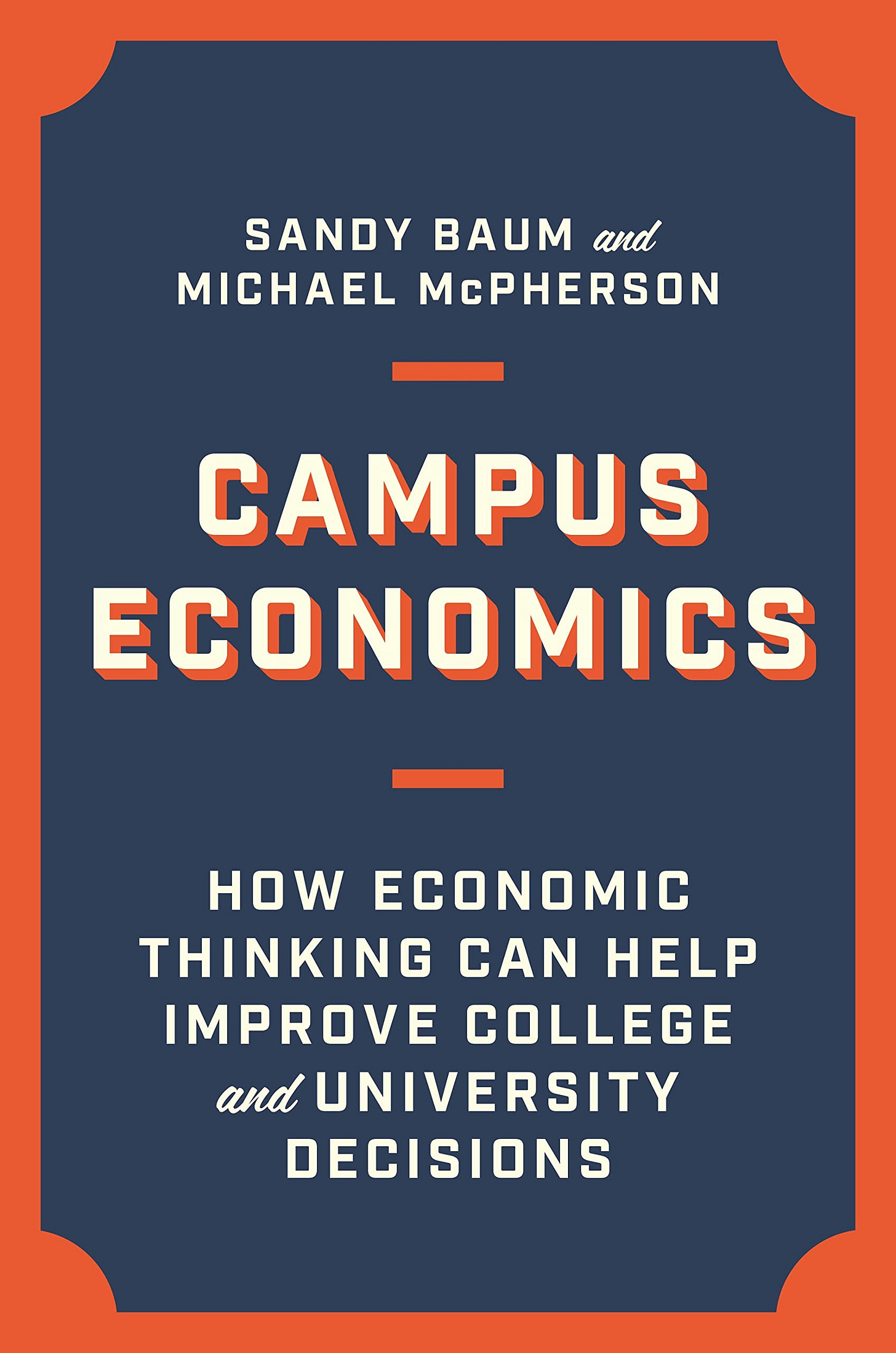
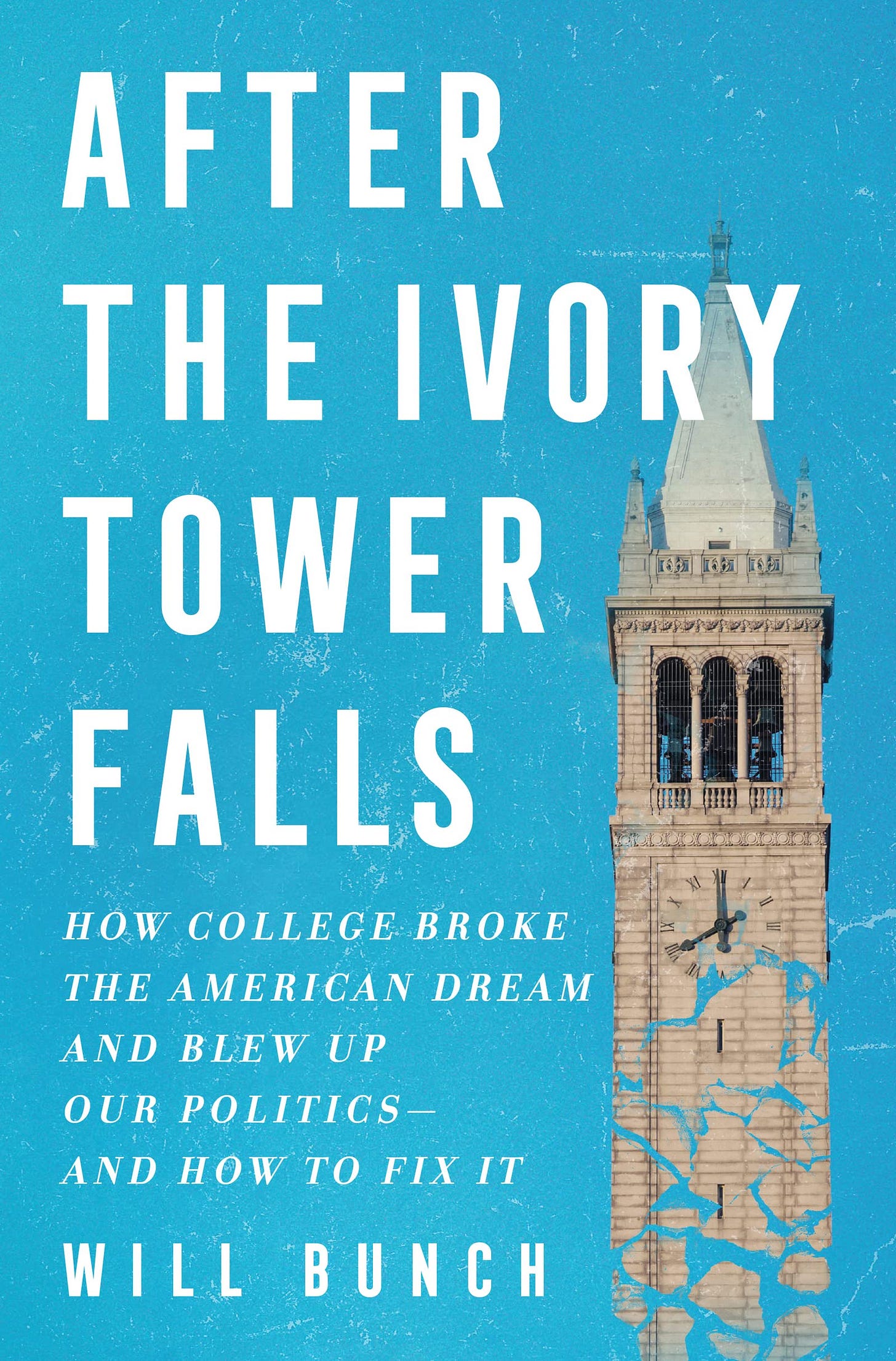



The Will Bunch book is available for $1.99 on Kindle.